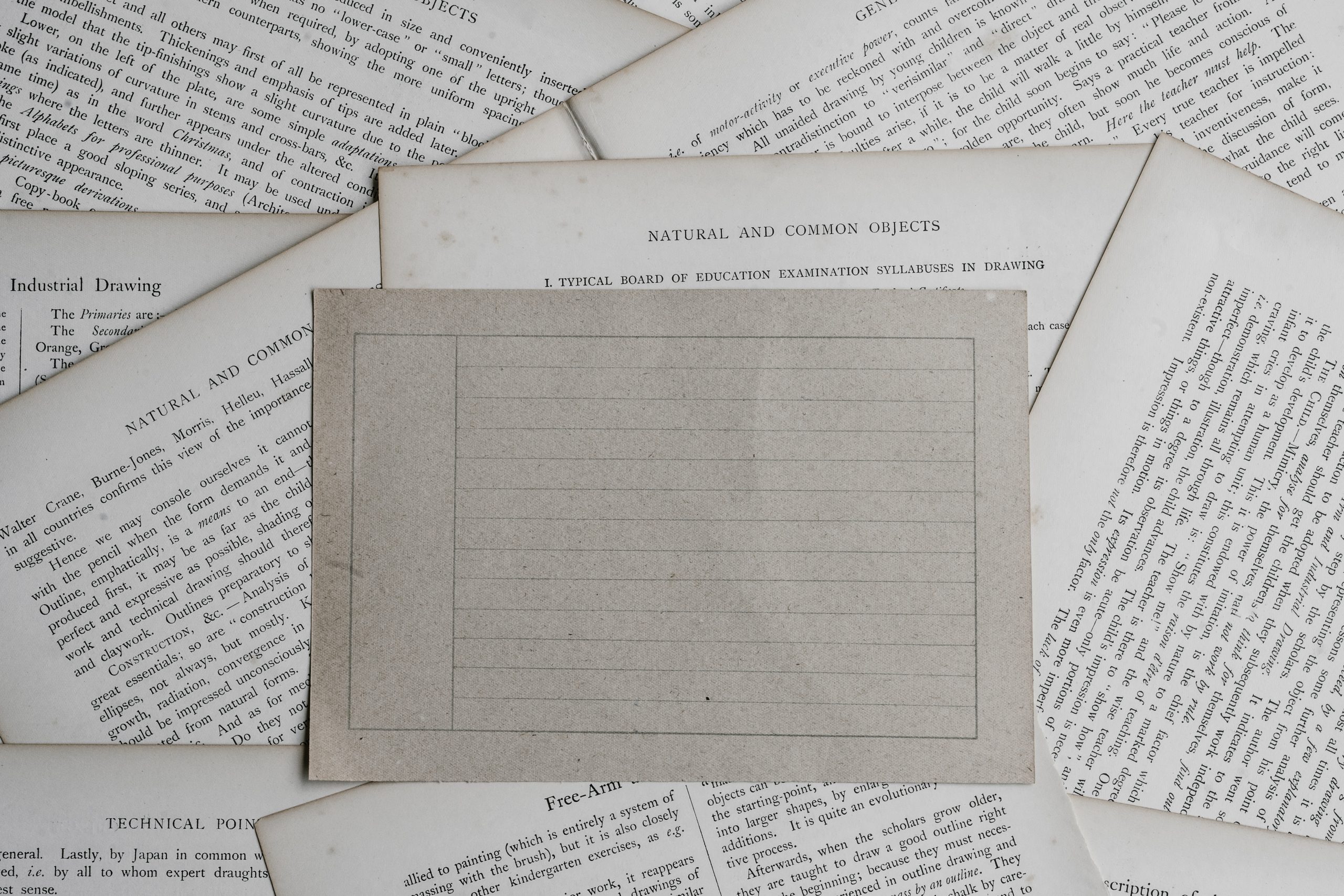Craft
We Need To Talk About Professional Jealousy
Embracing disappointment is far more healthy than begrudging another writer their success

“I never thought I’d be one of those people,” she said.
T Kira Madden and I were sitting in the private room of a fancy strip-mall restaurant in Albany, New York, and I was eating a very expensive salad. Earlier that afternoon, we had given a reading at a local bookstore with T Kira’s then-fiancé (now wife) H. The reading was part of the book tour promoting T Kira’s memoir Long Live the Tribe of Fatherless Girls. It had been a kindness on T Kira’s part, inviting me to read alongside her and H. The other writers who would be joining her later on the tour were far more advanced in their careers than I was at that time. But it was not an altogether surprising kindness. T Kira has always been one of the most generous literary stewards I know.
After the reading, T Kira invited me to join their families for dinner. Another kindness. I sat between T Kira and H., and we caught up in the way of friends who don’t see one another often enough. Eventually the conversation turned to the subject that had occasioned our reunion. As far as I could tell, Long Live the Tribe of Fatherless Girls was already a success. It had been reviewed widely and well, and had dominated my social media feed since its release. But when I asked T Kira how she was feeling about the book’s debut, she hesitated.
“I never thought I’d be one of those people,” she said.
“Which people?” I asked.
T Kira paused.
“I never thought I’d be one of those people tracking their book sales,” she said. “I never thought I’d be comparing my sales and reviews to other people’s. I never thought I’d be—”
She didn’t finish the sentence, but I knew where it was headed.
“Jealous,” I said.
T Kira looked down. Her long hair hung over her soup bowl.
I chuckled.
“Oh, do I have a story for you,” I said.
Querying agents is a very specific flavor of hell, and it was comforting to feel like I wasn’t alone in the process.
I first met C Pam Zhang at a writers’ conference in Vermont in 2017, six months before my reading with T Kira. I had edited a story of Pam’s for a literary journal earlier that year, and I was excited when I learned we’d both be attending the conference that summer. We even conspired to enroll in the same fiction workshop. Pam is a brilliant writer, and her sly and observant sense of humor immediately endeared me to her. What’s more, we were at similar places in our careers then, both querying agents for manuscripts, Pam for her novel How Much of These Hills is Gold, me for a collection of short stories. Querying agents is a very specific flavor of hell, and it was comforting to feel like I wasn’t alone in the process, to know that Pam and I were in the same boat. Then, a month after the conference, Pam signed with an agent and sold her novel, while the prospects of representation for my own manuscript had all but evaporated. A month later, we applied for the same fellowship. Pam got it; I did not. A month after that, a pedigreed literary journal rejected one of my stories and shortly thereafter accepted a story of Pam’s. As her friend and as an editor who had supported her work, I was happy for Pam—I genuinely was—but tangled up in that feeling was something else, something that complicated it. It felt as though Pam had made it to dry land, and now there I was, alone in our boat, trying my best to row one-oared.
What is this awful feeling? I wondered.
Oh fuck, I realized. I’m jealous.
When I told T Kira this story, she nodded.
“But here’s the thing. It wasn’t jealousy,” I told her. “It was something very different.”
In Bird by Bird: Some Instructions on Writing and Life, Anne Lamott writes, “Jealousy is one of the occupational hazards of being a writer, and the most degrading.” The first time I read that sentence, my immediate reaction was relief. Oh, thank God, I thought. I’m not alone in this experience. Professional jealousy does often feel like an occupational hazard for writers, but it has been my experience that as a community we don’t really talk about it. Sure, we may voice it jokingly—“I’m so jealous!”—or indirectly, by making some passive-aggressive remark about another writer’s success, but honest and vulnerable conversations about the experience of professional jealousy generally seem to be lacking. Among writers, the subject feels almost taboo. At least, that has been my experience.
I do want to say that what we popularly refer to as “professional jealousy” might more accurately be termed “professional envy” by clinicians and emotions researchers. The distinction being that jealousy arises from the fear of losing something we have to another person, whereas envy stems from the desire for something another person has that we lack. I believe strongly in the importance of emotional literacy and granularity—the ability to accurately name and distinguish between emotions—but culturally we use the term “professional jealousy,” not “professional envy,” and in my conversation with T Kira jealousy was the word we used, so for the purposes of this essay, I’ll let it stand.
There is a degrading quality to professional jealousy because it often edges dangerously close to resentment.
Anne Lamott is not wrong. For me, there is a degrading quality to professional jealousy because it often edges dangerously close to resentment, a kind of begrudging another person their successes. This is especially discomfiting when the person in question is one’s colleague and friend. As I began to interrogate my relationship with professional jealousy, and specifically this situation with Pam, my thinking on the subject evolved. I realized that what I had framed to myself as jealousy was actually, as I told T Kira, something else entirely. Because I didn’t begrudge Pam her success; that was why that framing felt off. But an unfortunate byproduct of our reluctance to talk about professional jealousy openly and honestly, to instead relegate it to this weird cone of silence, is that it can lead to a kind of mistaken identity. Once I began to investigate exactly what I was feeling, I could see quite clearly that it was not jealousy.
It was disappointment.
I’ve been sober and in twelve-step recovery for more than fourteen years. I often joke that in the early years of my sobriety I very much wanted to be the valedictorian of recovery. I also spent a number of years teaching mindfulness practice, so trust me when I say I know myself well enough to understand that I still have a lot of ego invested in being perceived as good. And when I say good, I mean spiritual. I also know that disappointment remains one of the most difficult emotions for me to reckon with, both personally and professionally.
I hate disappointment.
Disappointment feels simultaneously self-indulgent and lacking in gratitude for any measure of success I’ve already achieved. And when I feel disappointed, I find myself telling the story that the real issue is an overestimation of myself or the value of my work. Disappointment forces me to recognize that I really wanted something for myself, that I thought my work might be worthy of recognition, and within that framework (a framework my mind has designed for itself) desire begins to feel threatening, because to want something is to risk disappointment. And this is where my egoic mind becomes quite cunning.
My ego tells me there’s a clear solution to jealousy: cure it with gratitude and humility.
Because I hate feeling disappointed, because desire feels dangerous, my mind tells me that what I am feeling is not disappointment. It tells me I’m jealous. And the reason for this is actually quite simple, though the logic, I’ll admit, is a bit acrobatic, as so often is the case where the ego is concerned. The story I tell myself is that spiritual people do not get jealous. Spiritual people do not begrudge other people their success. The benefit of this mode of thinking is that my ego tells me there’s a clear solution to jealousy: cure it with gratitude and humility. (See: good, spiritual human being.) I then try to out-spiritualize my jealousy as I would any other character defect, and the whole process becomes a distraction from what I’m actually feeling. By engaging with it from a place of self-improvement, I get to avoid what would otherwise be an uncomfortable or painful experience, an experience I view as a threat to my well-being. I get to spiritually bypass disappointment.
When I explain this relationship between professional jealousy and disappointment, this is usually the juncture at which I am met with some resistance from those who would defend professional jealousy as an asset. They bring up the concept of literary nemeses and the benefits of competition. My response to these rejoinders is usually the same. First, I tell them that personally I choose to leave professional jealousy to those better equipped to handle it. If it’s not problematic for them, then they don’t have a problem. But I also question the designation. If another writer’s work or success—regardless of whether I care for that writer and their work or not—spurs me to devote myself more intensely to my own writing, or to strive toward excellence, then a more accurate designation for that experience might be motivation, or ambition, or—perhaps reluctantly—inspiration. Again, this is where emotional literacy and granularity are important.
For me the pitfalls of professional jealousy are too numerous. The most obvious is that it makes another human being the target of my disappointment. I tell myself that if I had what they had, I would not feel how I feel, and it doesn’t take long for that story to harden into something like resentment. I begin to blame the other person for what I’m feeling, often unconsciously. And while that might offer some temporary relief for my ego, if I’ve learned anything in my years of recovery, it’s that when I resent another person, I am the one who suffers. Which brings me back to professional jealousy as a tactic of avoidance.
When I live in the belief that if I had what another person has, I wouldn’t feel the way I feel, I am living in a fantasy, and when I live in a fantasy there is no one here—in reality—to tend to my feelings. Which, of course, is the whole point: to avoid feeling disappointed. Only now I’ve dragged another person into the pit with me, whether or not they know it. And, let’s be honest, nine times out of ten, they do not. So the only person suffering is me.
The simple answer is that disappointment doesn’t feel good.
But why this insistence on avoiding disappointment? What is it about that experience that prompts my mind to tell me jealousy would be the preferable option? The simple answer is that disappointment doesn’t feel good. The more complicated answer is that the only way through it is to feel it.
That night at the restaurant I told T Kira that four months after I’d met Pam my boyfriend had gone missing. We had met in recovery two years prior and had been dating for a little over a year. It was three days before Christmas, and he was supposed to fly into my hometown from the Southwest to spend the holiday with my family. Instead he went missing. By then I’d been sober for nine years and had been around long enough to know that when people in recovery go missing it usually means one of two things: that they’ve relapsed and are out using, or that they’re dead. After I received the news of his disappearance, I called my friend Molly, who’s one of my oldest and dearest friends in recovery, and told her what happened.
“I don’t know what to do,” I said.
“Why don’t you come over here,” she suggested.
We stood on the front porch of her house while I smoked a cigarette, the snow falling around us.
“How are you doing?” she asked.
“Well,” I said, and I gestured to my chest, where I’ve learned I carry most of my emotions, “I recognize that there’s some rage here. But I also feel totally fine, and I’m trying to figure out if this is radical acceptance or dissociation.”
Molly looked at me. “Oh,” she said, “I think you are a highly dissociated person.”
This was neither the response I had hoped for nor expected to hear.
“Really?” I said. “I feel like I usually have such a clear understanding of my emotional landscape.”
“Yes,” she said. “But understanding is not feeling, Benjamin. Emotions are a physiological experience. We experience them in the body.”
It was a helpful and important reminder.
It’s discouraging to see the thing we want, to be so close to it we can almost touch it, and then to be told it isn’t for us.
In the weeks that followed, I began to wonder what role my resistance to feeling my feelings was playing in my situation with Pam. I realized that for someone like me—someone who is inclined to live from the neck up, to filter my emotions through the lens of my thinking—disappointment is a particularly difficult experience precisely because it requires me to get out of my head and into my body. Anyone who has ever witnessed a child throwing a tantrum in the grocery aisle understands that disappointment is a physically uncomfortable experience. It’s discouraging to see the thing we want, to be so close to it we can almost touch it, and then to be told it isn’t for us, not yet, maybe never. It resonates in the body.
But I think most parents will tell you that if you stay with that child and don’t try to cajole them out of their feelings, eventually the tantrum will pass—though this approach is often inconvenient and usually takes longer than we would like.
This all begs the obvious question: How? How do we feel disappointment without avoiding it or offloading it onto someone else? Without giving in to the story about how we’ve once again overestimated ourselves or the value of our work? Without perceiving disappointment—and, by extension, desire—as a threat to our well-being? To loosely quote Pema Chödrön, we have to stop stepping over ourselves like we’re not even there. In my experience, this has required three things.
First, I have to accurately identify my disappointment. Disappointment isn’t self-indulgence or a lack of gratitude; it isn’t a failure of character or a threat to my well-being. It is the natural byproduct of wanting something that has not come to fruition. To desire is to make ourselves vulnerable; to come up empty-handed hurts.
Then I need to support the body that houses that disappointment.
Despite having taught body-based mindfulness practice to hundreds of people and having done my fair share of somatic trauma work, it is still surprisingly easy for me to forget that when I am struggling emotionally I need to take care of my body in the same ways I might if I was sick or injured. That’s why Molly’s reminder about emotions being a physiological experience was so helpful. The basic tenets of self-care apply as much to my emotional experience as they do to my physical experience.
The areas I turn my attention to are rest, nutrition, and movement. I ask myself: Am I sleeping enough, regularly enough? Am I eating enough, regularly enough? Is the food I’m feeding myself nourishing my body? Am I allowing my disappointment to find its expression physically? Sometimes this looks like that child-in-the-grocery-store’s tantrum: a lot of stomping and shouting and crying (though personally I prefer to do these alone in my car). Sometimes it involves a walk or a workout or a solo dance party in my kitchen. Other times it means sitting in child’s pose for fifteen minutes or a couple of rounds of 4-7-8 breathing. Whatever I need to do to stay in my body, I do it, so that I can feel my feelings.
I have to share my disappointment with another person. I tell someone about it, without apology, justification, or explanation.
Lastly, I have to share my disappointment with another person. I tell someone about it, without apology, justification, or explanation, which helps me circumnavigate my tendency to shame myself for what I’m feeling or misidentify it as jealousy and offload it onto somebody else. This has required me to turn a discerning eye to my community and find the person who will be able to hold space for my disappointment without trying to absolve me of it (“Don’t be sad! You’re a great writer!”) or subtly shame me into feeling different (“But you just got that big grant! Focus on that!”). Feelings do not want to be fixed; they want to be felt.
In the months following our conversation, T Kira and I began texting our disappointments to each other:
A hard NO from Yaddo. Man, this disappointment REALLY stings.
Every day at the airport I rush to the bookstore or newsstand and search for my book (a lifelong dream) and…DISAPPOINTMENT!
Sharing my disappointment doesn’t solve it—primarily because disappointment doesn’t need to be solved—but it does help me feel less alone in the feeling, and I have found great comfort in that.
I no longer believe that professional jealousy is an occupational hazard for writers, but I do believe disappointment is one—at least in that disappointment is a hazard of the human occupation, of being a human having a human experience. I certainly don’t do this practice perfectly, but these days I am willing to befriend my disappointment. To stop stepping over it like it’s not even there.








